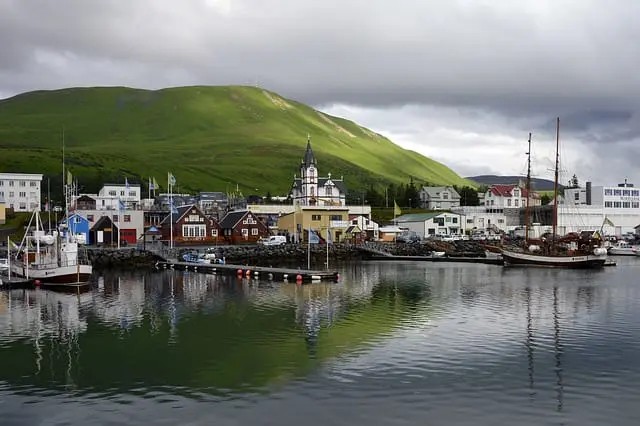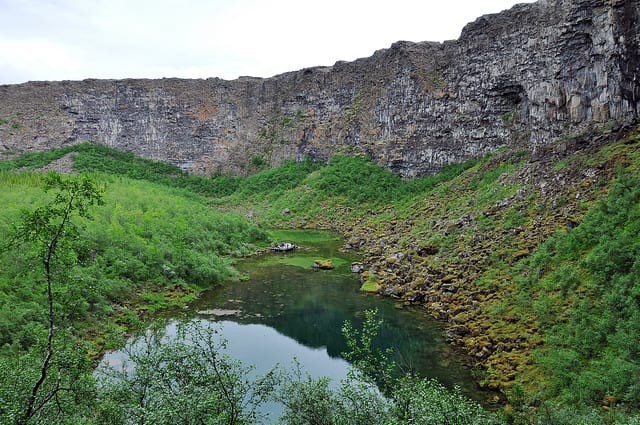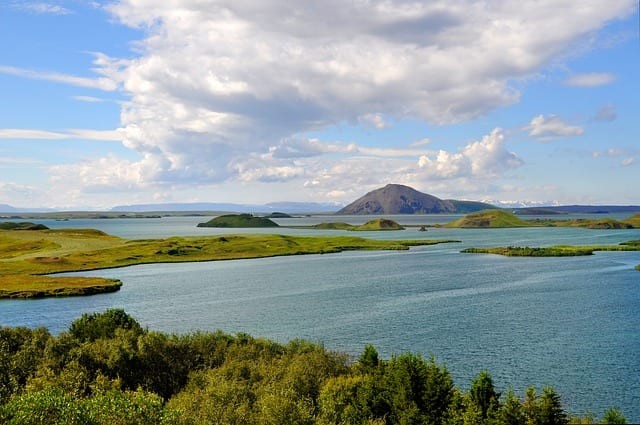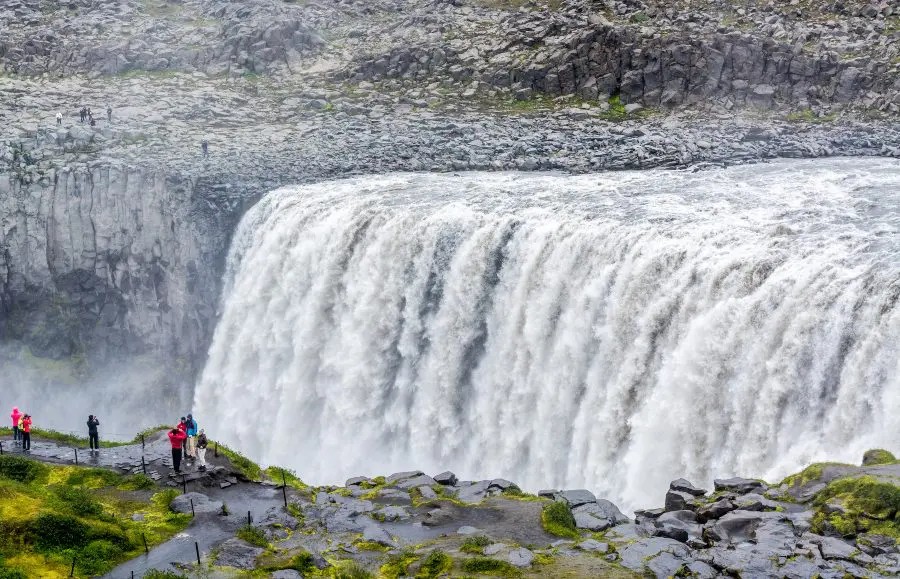


Get to know Iceland
Edit: June 8th, 2020
The Golden Circle in Southwest Iceland has been one of the more famous routes to go sightseeing in Iceland for years. The circle includes Þingvellir National Park, Geysir geothermal area, and Gullfoss Waterfall or Golden Waterfall but that is where the name comes from.
However, the Golden Circle has now got stiff competition from the Diamond Circle in North Iceland.

Húsavík is possibly the whale-watching capital of Iceland. The Atlantic Ocean north of Iceland is incredibly rich in whales to see, and it is possible to choose from a few different whale-watching tours. Next to the dock is Iceland’s best whale museum, where you can find quite a few skeletons of whales and a plethora of information on these giants of the sea.

Ásbyrgi canyon was at some point a riverway for the Jökulsá á Fjöllum glacier river thousands and thousands of years ago. Today, it runs about 2 kilometers to the east. Or as legend has it; it is a hoof print made by Sleipnir, Norse God Óðinn’s horse, when he stepped down.
The area is about 3.5 kilometers in length and 1 kilometer wide. In the middle of the canyon is a rock formation, simply called Eyjan (The Island). It is 25 meters high but it is easy to hike from one end to get a great view of the canyon.

Mývatn lake is home to most of Iceland’s midges. The name of the lake means Midge-Lake, so it’s no wonder there are a lot of them. Don’t worry, though; they don’t bite. Mývatn is a very beautiful place surrounded by hundreds of pseudocraters and is only one of very few lakes that has moss balls or Marimo. They grow in Iceland, Japan, Scotland, Estonia, and Australia (since 2014).
The lava rock formations at Dimmuborgir are a very special place to visit, as are the Mývatn Nature Baths, which resemble the Blue Lagoon but are smaller and more personal in style. Not far away is Krafla volcano, which erupted nine times in the 1980s but is known to have erupted about 29 times in historical times.
Nearby is the Námafjall geothermal area. Don’t let the strong rotten egg smell deter you, the area is quite beautiful.

This waterfall is part of the Jökulsá á Fjöllum glacier river (the one mentioned above) and is the most powerful waterfall in Europe and the largest in Iceland in terms of water volume. However, the average water flow is about 193m3/s. People might also know it from the start of the Hollywood film Prometheus. The waterfall is about 100 meters wide and has a drop of about 44 meters.
It is possible to access it from both sides. The west bank is not as good as the east bank, but there are minimal facilities, including a bathroom, there. Just like Niagra Falls on the US side, the view is not too great.
On the east side, there is an information panel, a well-maintained track to the best spots to view the waterfall, and a public restroom. Gullfoss is exquisite to see, but Dettifoss’s raw power is awe-inspiring.
Mývatn, Húsavík, and Ásbyrgi (one of the best) all have great camping grounds to park overnight after a great day of sightseeing and hiking the Diamond Circle.

CampEasy Opening hours 09:00-16:00
Learn more about Self-Service
A minimum of 20 hours notice is required to use the booking engine. Click here to contact us directly for a booking less than 20 hours from now.
Change Date